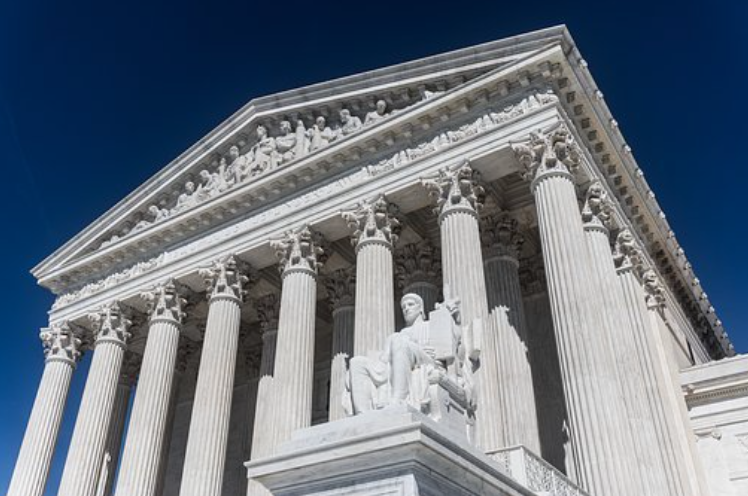The Supreme Court has extended its stay until March 18th, during which time it will assess claims that Texas Senate Bill 4 infringes on the federal government’s exclusive right to dictate border and immigration policy.
The U.S. Supreme Court has said that it will uphold and extend an injunction against a controversial Texas law, which delegates certain immigration enforcement authorities to local and state-level police departments.
According to The Texas Tribune, on Tuesday, Justice Samuel Alito announced that he had extended his stay on Senate Bill 4 until at least March 18th.
Senate Bill 4, notes the Tribune, would make undocumented entry a Class B misdemeanor, carrying a punishment of up to six months in jail. Repeat offenders could be charged with second-degree felony offenses, carrying penalties of between two and 20 years behind bars.
The law would also require that Texas state judges order that undocumented immigrants convicted of border-related offenses be returned to Mexico, with local law enforcement agencies responsible for such deportations.
The U.S. Department of Justice and civil rights organizations have since filed separate claims challenging the legality of Senate Bill 4, with the federal government alleging that it alone reserves the right to decide, enact, and enforce immigration policy.
Although the Justice Department’s lawsuit found early success in district court, Texas appealed—and managed to secure a favorable ruling from the conservative Fifth Circuit Court of Appeals. Absent any action from the Supreme Court, Senate Bill 4 would have taken effect on March 9th.

The Fifth Circuit Court’s ruling had effectively overturned a decision by U.S. District Judge David Ezra, who found that state usurpation of the federal government’s exclusive authority over immigration policy “threatens the fundamental notion that the United States must regulate immigration with one voice.”
Ezra made his position apparent during a round of oral arguments in February, during which he expressed serious concerns about the implications of state-specific border policies: if Texas can set and enforce its own immigration rules, Ezra suggested, then there would be little stopping other border states—California, or Maine—from enacting contradictory regulations.
“That turns us from the United States of America into a confederation of states,” Ezra said during a round of oral arguments in February. “What a nightmare.”
In its petition to the Supreme Court, the Department of Justice said that allowing Senate Bill 4 to take effect would cast doubt on more than 150 years of precedent holding that the federal government alone dictates immigration policy.
“Absent this Court’s intervention, SB4 will go into effect […] profoundly altering the status quo that has existed between the United States and the States in the context of immigration for almost 150 years,” U.S. Solicitor General Elizabeth Prelogar wrote. “This Court has long recognized that the regulation of entry and removal of noncitizens is inseparably intertwined with the conduct of foreign relations and thus ‘vested solely in the Federal Government.’”
Texas, for its part, reiterated its unusual stance that undocumented immigration is tantamount to an “invasion,” arguing that the U.S. Constitution “recognizes that States may unilaterally respond when ‘actually invaded.’”
Sources
The Supreme Court may let Texas get away with a totally unconstitutional deportation law
U.S. Supreme Court continues blocking Texas immigration law
U.S. Supreme Court extends pause on SB4, Texas’ immigration bill; new lawsuit challenges law


Join the conversation!